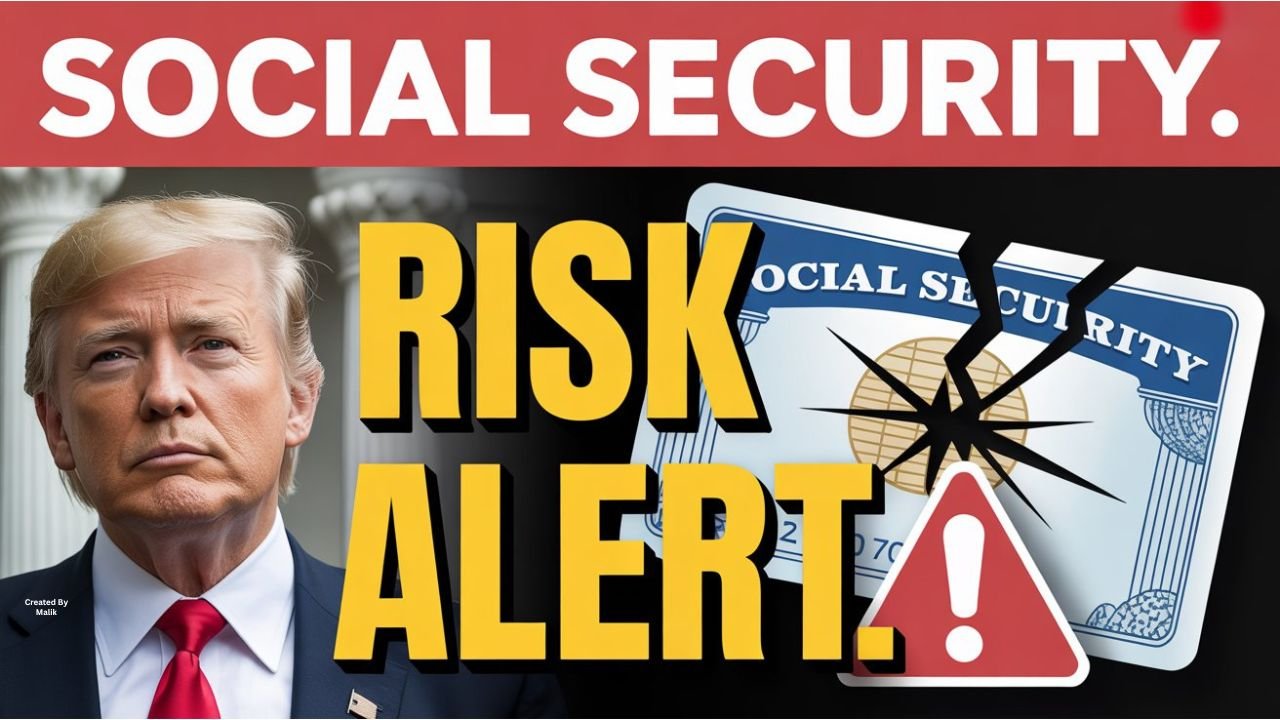Social Security Risk Alert: In today’s digital world, your Social Security information is more vulnerable than ever. With increasing reports of cybercrime, identity theft, and scams targeting Social Security numbers (SSNs), it’s important to understand the risks—and how you can protect yourself.
Your SSN is one of the most sensitive pieces of information you own. If it falls into the wrong hands, someone could open credit accounts, apply for loans, claim benefits, or even file fraudulent tax returns using your identity.
This article explains the risks in simple terms and provides practical steps to help keep your data and identity safe.
Why Your Social Security Information Is at Risk
Your Social Security number is commonly used for:
- Applying for jobs
- Filing taxes
- Opening bank or credit accounts
- Receiving government benefits
- Medical insurance and hospital records
Because it’s used so widely, it’s also highly targeted by scammers. If stolen, it can cause long-term financial and legal problems.
$1,200 Stimulus Checks 2025: Is Everyone Getting Paid? Eligibility & Expected Dates
Common Ways Your Data Can Be Stolen
Here are some ways identity thieves may gain access to your Social Security information:
| Method | How It Happens |
|---|---|
| Phishing emails or calls | Pretending to be IRS, SSA, or a bank to get your SSN |
| Data breaches | Hacking large company or healthcare databases |
| Mail theft | Stealing documents with personal data |
| Fake job ads | Asking for SSN during fake hiring process |
| Public Wi-Fi attacks | Intercepting internet data when you log into accounts |
The Social Security Administration will never call, text, or email requesting your SSN or bank details.
Key Threat Categories Affecting Millions
Here is the single table included in this article showing common risk areas and what they involve:
| Threat Type | What It Involves | Why It Matters |
|---|---|---|
| Account Takeover | Unauthorized changes to online benefits access | May redirect payments |
| Impersonation Attempts | Fraudsters posing as officials via calls or messages | Tricks victims into sharing information |
| Phishing Messages | Fake emails or texts requesting verification | Designed to steal login details |
| Credential Theft | Hackers using breached data | Can unlock multiple accounts |
Warning Signs of Identity Theft
You may be a victim if you notice:
- Unexpected changes in your Social Security benefit records
- Bills or debt collections you don’t recognize
- New accounts appearing on your credit report
- IRS notices about multiple tax filings
- Your Social Security statement showing earned wages from employers you never worked for
If you see any of these signs—take action immediately.
How to Protect Your Social Security Information
Here are practical steps to protect yourself:
- Create a secure “my Social Security” account on SSA.gov
- Freeze your credit with all major credit bureaus (Equifax, Experian, TransUnion)
- Never share your SSN unless absolutely necessary
- Use strong passwords and multi-factor authentication on financial accounts
- Avoid public Wi-Fi for sensitive tasks
- Monitor your credit reports regularly
- Shred documents before discarding them
- Report suspicious emails or calls immediately
What to Do If Your Identity Is Compromised
If you suspect someone has access to your SSN:
| Step | Action |
|---|---|
| 1 | Contact the Social Security Administration |
| 2 | Notify the IRS if tax fraud is suspected |
| 3 | Freeze your credit instantly |
| 4 | File a complaint at IdentityTheft.gov |
| 5 | Report to local law enforcement if needed |
The faster you act, the better you can limit the damage.
Final Thought
Your Social Security number is the key to your financial identity. Treat it as securely as you would treat your bank account or passport. With cyber threats growing, protecting your personal information is no longer optional—it’s essential.
Taking proactive steps now can help you avoid major financial losses, legal issues, and stress later.
Need Help?
Would you like guidance on:
- How to freeze your credit
- Creating a secure Social Security online account
- Checking if your SSN was exposed in a data breach
Frequently Asked Questions(Social Security Risk Alert)
Q1. Can someone use my SSN to collect my benefits?
Yes, if your data is stolen, someone may attempt benefit fraud. Monitoring is essential.
Q2. Is it safe to email my Social Security number?
No. Avoid sending SSN digitally unless via secure, encrypted channels.
Q3. If a company requests my SSN, should I provide it?
Ask if it’s necessary, how it will be stored, and if there are alternatives like a driver’s license or employee ID.
Q4. Can I change my Social Security number if stolen?
In extreme identity theft cases, yes—but it’s rare and must be approved by the SSA.






